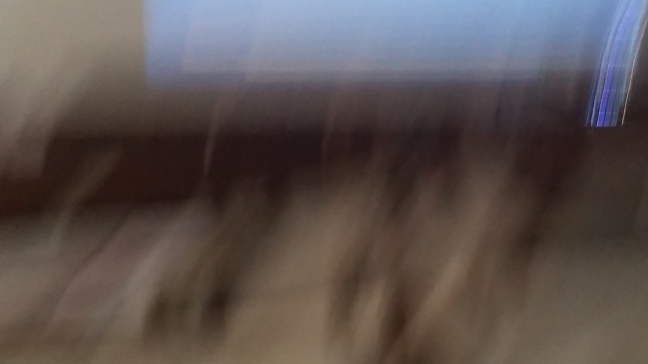Ethnographic Experimentation: Fieldwork Devices and Companions
13th–15th July 2017, Jardim Botânico Tropical, Lisbon
First Workshop of the #Colleex
Collaboratory for Ethnographic Experimentation, an EASA network
Programme and book of abstracts
1st_Colleex_Programme (PDF)
1st_Colleex_Abstracts (PDF)
Call for Papers
“Fieldwork is not what it used to be” (Faubion and Marcus, 2009). The investigation of previously ignored social domains and the incorporation of new sensibilities beyond its typically verbal or visual conventions, have expanded ethnography: Anthropologists now engage in novel forms of relationship and intervention, and enter into heterodox exchanges with other disciplines like arts and design. The invocation of experimentation in fieldwork is part of this widened exploration of new ethnographic modalities that reshape the norm and form of fieldwork.
Recent invocations of experimentation in ethnographic projects are not merely a metaphorical gesture. Descriptive accounts of experimentation bring to life ethnographic imaginations that transform field informants into epistemic partners (Holmes and Marcus, 2005), remediate the form of ethnography in the company of others (Rabinow, 2011), or trade in the traditional comparative project of anthropology for a collaborative one (Riles, 2015). The experimental can thus be a distinctive articulation of the empirical work of anthropologists in the field.
The epistemic figure of experimentation is not new in anthropology (or other social sciences). On the contrary, the experimental nature of many ethnographic projects of the contemporary connects with and draws from the creative exploration of writing genres inaugurated in the 1980s but, while the experimental drive was then located in the space of representation, we are now witnessing a shift where fieldwork is a locus of experimentation.
To invoke ethnographic experimentation is not necessarily to signal a methodological rupture with conventional forms of ethnography. Rather, it is a distinctive form of narrating contemporary forms of fieldwork where ethnography is less a set of practicalities and procedures than a mode of anthropological problematization (Rabinow, 2011). Relying on the most genuine descriptive aspiration of anthropology, the invocation of ethnographic experimentation thus signals the exploration of conceptual languages for describing distinctive forms of engagement in the field.
Experimentation remains an elusive term however, sometimes loosely used, perhaps metaphorically or allegorically. At the workshop we would like to focus on specific, thoughtfully designed interventions through which ethnography in the field unfolds in experimental ways. We are interested in particular forms of relationship, material artefacts, digital infrastructures, fieldnotes genres, spatial venues, methods of meeting… Following John Law and Evelyn Ruppert (2013) we call them “fieldwork devices”: arrangements that assemble the world in specific social and material patterns for the production of knowledge. We thus invite scholars to share descriptive accounts that offer insights of how fieldwork devices turn ethnography into a venue for experimentation.
References
Faubion, J. D., & Marcus, G. E. (Eds.). (2009). Fieldwork Is Not What It Used to Be: Learning Anthropology’s Method in a Time of Transition. Ithaca, NY: Cornell University Press.
Holmes, D. R., & Marcus, G. E. (2005). Cultures of Expertise and the Management of Globalization: Toward the Re-Functioning of Ethnography. In A. Ong & S. J. Collier (Eds.), Global Assemblages: Technology, Politics, and Ethics as Anthropological Problems (pp. 235—252). Oxford: Blackwell.
Law, J., & Ruppert, E. (2013). The Social Life of Methods: Devices. Journal of Cultural Economy, 6(3), 229—240.
Rabinow, P. (2011). The Accompaniment: Assembling the Contemporary. Chicago: University Of Chicago Press.
Riles, A. (2015). From Comparison to Collaboration: Experiments with a New Scholarly and Political Form. Law and Contemporary Problems, 78(1-2), 147—183.
Organised by
#Colleex – Collaboratory for Ethnographic Experimentation, an EASA network
Instituto de Ciências Sociais (ICS), Universidade de Lisboa
EBANO Collective – Ethnography-Based Art Nomad Organisation, Lisbon
Supported by
European Association of Social Anthropologists (EASA)
Jardim Botânico Tropical, Museu Nacional de História Natural e da Ciência (MUNHAC), Universidade de Lisboa
Professorship for Participatory Technology Design, MCTS, TU Munich
Organising committee
Eeva Berglund, independent scholar
Francesca De Luca, ICS, ULisboa
Adolfo Estalella, Spanish National Scientific Council
Anna Lisa Ramella, Locating Media, University of Siegen
Chiara Pussetti, ICS, ULisboa
Tomás Sánchez Criado, MCTS, TU Munich
**

